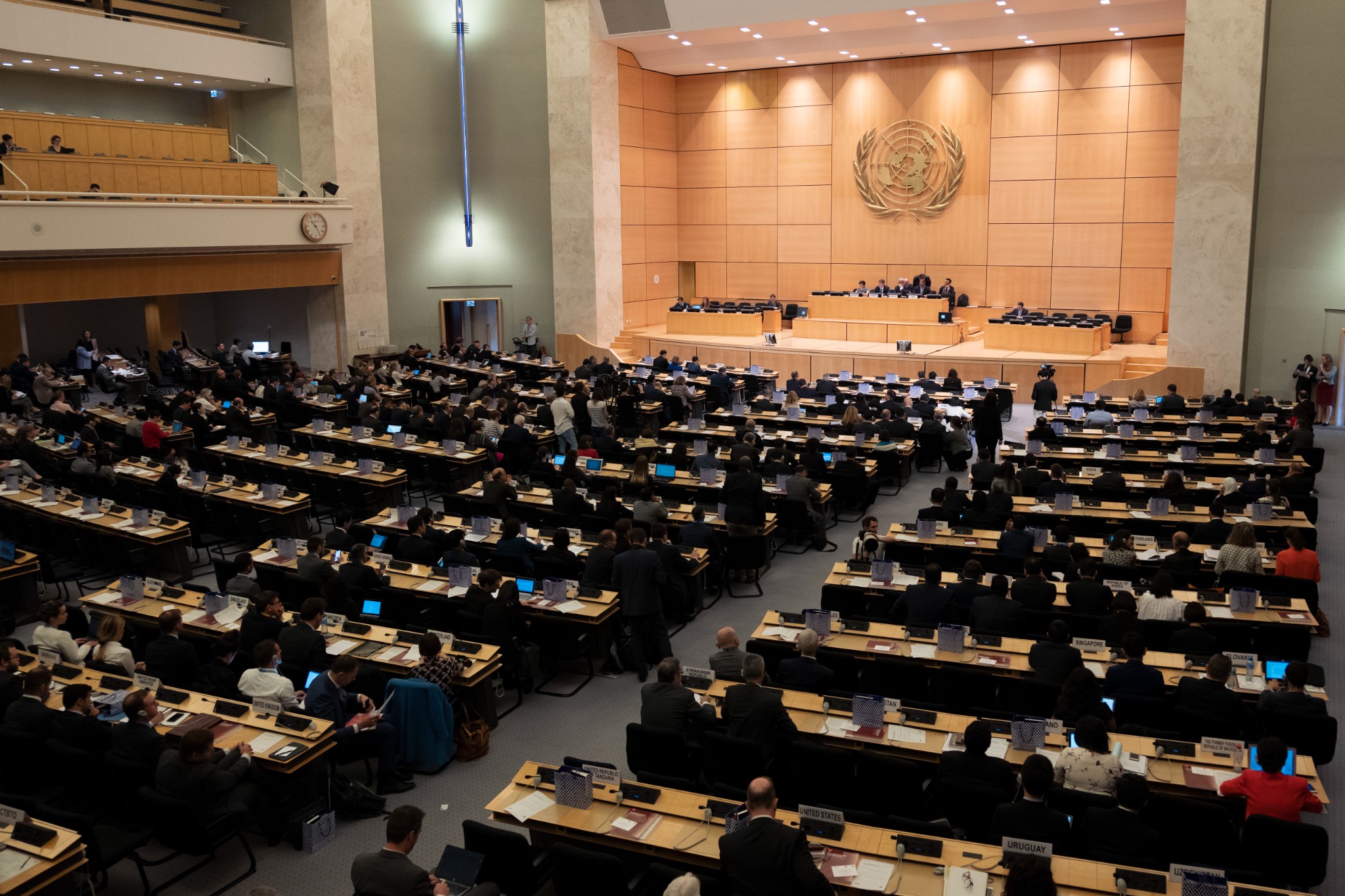 Opening Session of the NPT, Geneva 2017. Credit: UN.
Opening Session of the NPT, Geneva 2017. Credit: UN.
The P5 Joint Statement and its Importance Ahead of the NPT Review
On January 3, the five permanent members of the UN Security Council (the P5) issued a joint statement on their continued commitment to the Nuclear Non-Proliferation Treaty (NPT). Mounting tensions between the great powers (the U.S., Russia, and China) and their nuclear modernization efforts, Iran’s significantly reduced breakout time, and North Korea’s recent hypersonic missile test and “more advanced” ballistic missile test all raise concerns. This declaration is an important re-affirmation of the desire to prevent nuclear war and the further spread of nuclear weapons.
The joint statement was made prior to the 10th NPT review conference, which was planned to take place in January 2022 but has once again been postponed to August 2022 due to the COVID-19 pandemic. The NPT is intended to prohibit the proliferation of nuclear weapons and weapons technology, while promoting cooperation in the peaceful use of nuclear energy. Its main three pillars are: nuclear disarmament, non-proliferation, and peaceful use of nuclear energy. Opened for signature in 1968, this treaty entered into force in 1970, was indefinitely extended in 1995, and 191 countries have joined it, whereas North Korea signed it in 1985 and withdrew again in 2003. The three de facto nuclear-weapon states, Israel, India, and Pakistan, never joined the treaty. The review conference takes place every five years.
Stressing the far-reaching consequences of a nuclear war, the January 3 joint statement underlines the importance of bilateral and multilateral diplomatic approaches, arguing that further spread of nuclear weapons need to be prevented. It goes on to argue that as long as nuclear weapons continue to exist, they should only “serve defensive purposes, deter aggression, and prevent war.” In the statement the P5 also reaffirmed their obligations under the NPT in conjunction with Article VI on the nuclear arms race and nuclear disarmament. The P5 states further agreed that “a nuclear war cannot be won and must never be waged,” referring to the well-known formulation of the joint declaration already made by Ronald Reagan and Mikhail Gorbachev during the 1985 summit in Geneva.
Currently, Iran’s nuclear program and the difficult talks that are being held pose a major challenge for the NPT. As such, the outcome of the ongoing Iranian nuclear negotiations will have a significant impact on the treaty’s authority. An earlier statement of the P5 powers from the Paris meeting in December 2021 – the Joint Communique of the Non-Proliferation Treaty – drew attention to the urgency of a full return to the JCPOA. While all attempts to save the Iran nuclear deal seem to be more difficult than some had hoped, a diplomatic solution is still important and critical to the credibility of the NPT for two reasons. First, the failure to achieve a diplomatic solution would jeopardize the global effectiveness of the NPT and secondly it would increase the risk of nuclear proliferation, particularly in the Middle East. Should the negotiating partners fail to reach an agreement, Iran could decide to leave the NPT and reconsider its position on nuclear weapons, causing Saudi Arabia, Turkey, or other ME states to seek their own nuclear weapons to counter Iran’s nuclear arsenal. This would call into question the relevance of the NPT.
Starting the new year, the security challenges and tensions over the Ukraine crisis, Taiwan, and the Iranian nuclear program, coupled with the countries’ current modernization strategies are cause for concern as they all involve nuclear implications. The joint statement by the P5 prepared for the upcoming NPT review conference could provide a starting point to help ease these tensions and help guide efforts to prevent Iran from obtaining a nuclear weapon. While nicely worded, the joint statement now needs to be incorporated into practical steps to prevent the already heated tensions between the great powers from turning into a much larger confrontation, especially as China continues to modernize and expand its nuclear arsenal in violation of the spirit of the NPT.





